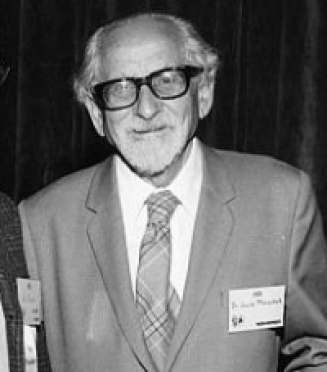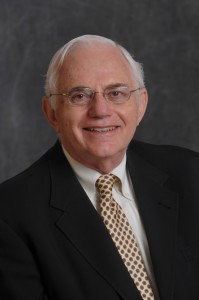Jacob Marshak
1898 – 1977, Professor of Management Science and Economics, Emeritus
Jacob Marschak (Jascha to his many friend) was born in Kiev, Russia on July 23, 1898. He was imprisoned by the Tsar for his revolutionary views and activities, but was liberated by the February 1917 revolution. Marschak was equally opposed to the Bolshevik dictatorship that took over in November 1917, and was Labor Minister in the Terek Soviet Republic. Following the Soviet takeover in 1919 he emigrated to Germany, where he received a Ph.D. from the University of Heidelberg in 1922. In the 1920s he held positions at a number of universities and economic research institutes in Germany, but when the Nazis took power in 1933, Jascha emigrated of Oxford, UK. At Oxford University, Marschak served as director of the Oxford Institute of Statistics between 1935-39.
Jacob Marschak arrived with his family in the USA in 1940, when he became professor of economics at the New School for Social Research (1940-42), then at the University of Chicago (1943-55), and at Yale between 1955 and 1960. In 1960 he came to UCLA, with a joint appointment as Professor in the School of Business Administration (now Graduate School of Management) and the Department of Economics. While at UCLA Jascha founded the Interdisciplinary Colloquium on Mathematics in the Behavioral Sciences which, under his leadership, attracted distinguished speakers in all fields and aspects of the behavioral sciences. This colloquium has been renamed the Jacob Marschak Interdisciplinary Colloquium on Mathematics in the Behavioral Sciences, and its ongoing activity will serve as a living memorial to him.
Jacob Marschak’s pioneering work was honored in many ways over the years. He was president of the Econometric Society in 1947, and vice-president of the American Statistical Association in the same year; he was elected Fellow of the Institute of Mathematical Statistics, Distinguished Fellow of the American Economic Association, Honorary Foreign Fellow of the Royal Statistical Society, Fellow of the American Academy of Arts and Sciences, and member of the National Academy of Sciences.
Jascha Marschak was not politically active after his youth, but his humanitarian concern for the victims of political repression motivated him to help several fellow Russian intellectual exiles find new life in the West. In the 1930s he organized assistance for refugee scholars fleeing Nazi Germany, and until his death assisted emigrant intellectuals from Soviet Russia.
Vigorous, creative, and young in spirit to the very last, he passed away while busily engaged in his duties as president-elect of the American Economic Association and actively pursuing many ongoing writing and research projects.




